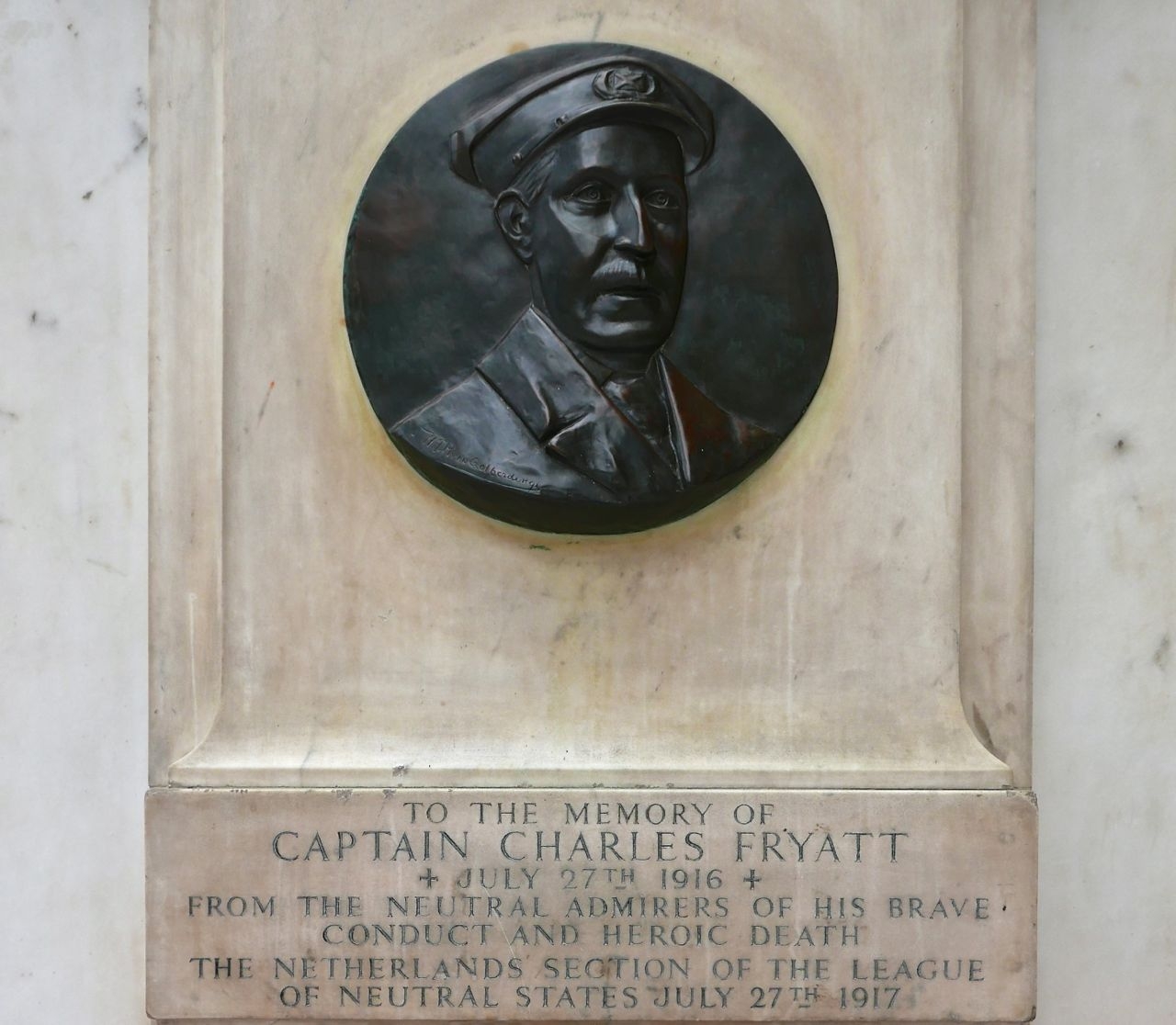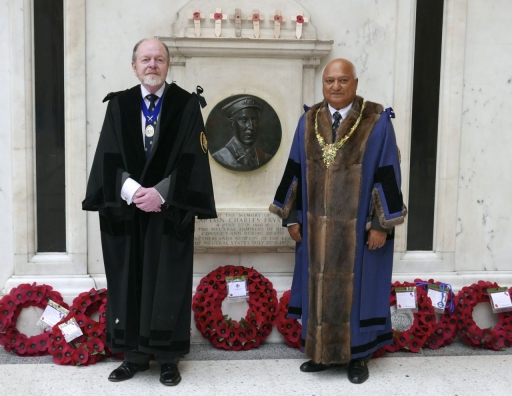A century after his execution for attempting to ram a German U-boat, tributes have been paid to the North Sea ferry captain, Charles Fryatt.
The wreaths lining his memorial at one of London’s busiest railway stations bear witness to a First World War episode that was as controversial in its day as the death sentence carried out on Edith Cavell.
Captain Fryatt faced a German firing squad after a brief trial in Belgium on July 27th 1916, nine months after the British nurse met a similar fate in Brussels.
British Prime Minister Herbert Asquith condemned Germany for an ‘atrocious crime against the laws of nations’.
Fryatt was a civilian seafarer, commanding the passenger ferries of the Great Eastern Railway which continued to ply the North Sea route between Harwich and the neutral Netherlands during the hostilities of 1914-18.
He was already the veteran of evading a German submarine when U-33 challenged him to stop on March 28th 1915 while approaching Rotterdam.
Fryatt ordered full steam ahead on his ship, SS Brussels, forcing the U-boat to crash dive.
At home, he won national acclaim for his actions, receiving an inscribed gold watch from the Admiralty, evidence that was to be used against him later by the Germans, who accused him of piracy.
Fifteen months later, Capt. Fryatt was again intercepted on the SS Brussels by German warships, and forced to surrender. Reports of the time suggest a spy had been signalling from the ferry.
Fryatt was charged with being a franc-tireur, or civilian engaged in hostile military activity, at a German naval court martial in the Belgian city of Bruges.
His trial, sentencing and execution all took place within a single day.
 Prime Minister Herbert Asquith, in an angry statement to the British House of Commons, accused the German High Command of renewing a policy of terrorism ‘under the stress of military defeat.’ American, Dutch and Swiss newspapers joined in the condemnation.
Prime Minister Herbert Asquith, in an angry statement to the British House of Commons, accused the German High Command of renewing a policy of terrorism ‘under the stress of military defeat.’ American, Dutch and Swiss newspapers joined in the condemnation.
For the Centenary, wreaths have been laid at Charles Fryatt’s memorial in Liverpool Street Station by seafarers, veterans and transport organisations, as well representatives from his home port of Harwich.
They line the monument presented to the Great Eastern Railway’s London terminus by the Netherlands section of the League of Neutral States on the first anniversary of his execution in 1917.
Capt. Fryatt’s body was exhumed in Belgium after the First World War, repatriated to Dover and brought to London in the same railway carriage used to carry Edith Cavell in 1919, and later the body of the Unknown Warrior.
After a funeral watched by huge crowds at St Paul’s Cathedral, he was taken to Harwich and laid to rest in All Saints’ Churchyard, Dovercourt.
Photos: Centenary News
Posted by: CN Editor
